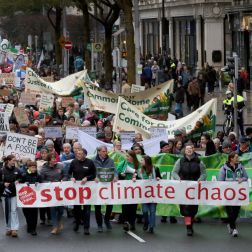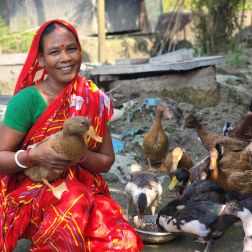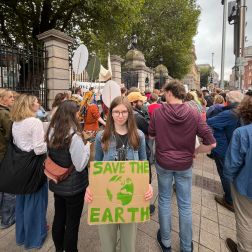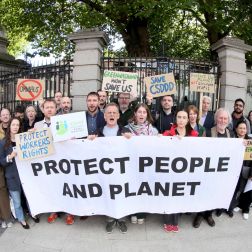- 4 mins read time
- Published: 14th January 2021
The island nations battling the rising tide of climate change
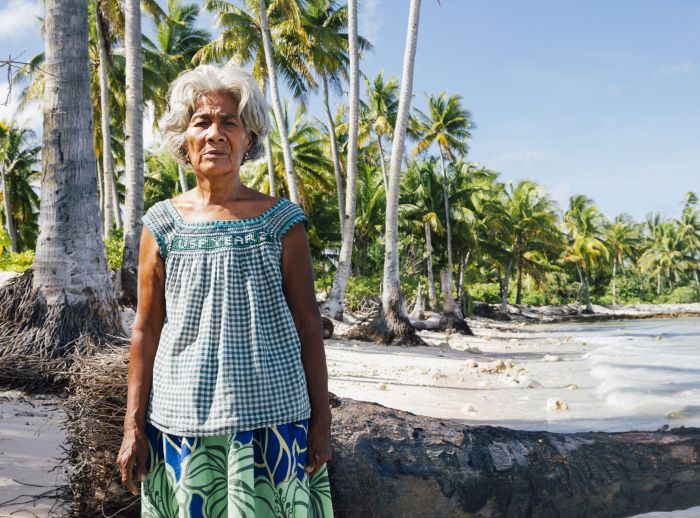
Hurricanes. Wildfires. Tornadoes. Flash floods. Cyclones.
These are some of the words or terms we usually associate with climate change.
The ferocity and intensity of these extreme weather events always get our attention – at least until the news coverage fades. But behind the dramatic headlines of major weather events, some communities have been left to deal with the long-term, insidious effects of climate change for years.
Although the unfolding disasters threatening these communities are as dangerous to lives and livelihoods as any sudden, one-off event, the seemingly glacial pace of these ticking timebombs means that such stories rarely get the attention they deserve.
This is just one of those stories.
In the central Pacific Ocean, the sprawling island nation of Kiribati is under siege from rising sea levels. Comprising 33 coral atolls (ringed islands which enclose a lagoon) and scattered across approximately 3.5 million square kilometres of ocean, the future of Kiribati is on a knife edge.
Most of its islands stand at just 1.8 metres above sea level. High tides lead to flooding which can contaminate the water supplies for weeks – even months. Another risk emerges when waves wash over the islands, destroying houses and crops, and inundating precious groundwater supplies with seawater. Groundwater contamination can cause illness, particularly among children. Infantile diarrhoea is believed to contribute to the high rate of infant mortality in Kiribati.
The residents of Kiribati are not the only people witnessing rising sea levels due to melting glaciers and ice sheets. The South Pacific island nation of Tuvalu, where the land rises just a few metres above sea level, also finds itself trying to stave off an encroaching ocean.
It is not just the security of people’s homes, crops and already-scarce water resources that is on the line – Tuvalu’s very existence is under threat from climate change. The 11,000 people living on this tiny archipelago, which covers just 26 square kilometres, fear a loss of culture and of their ties to their land. They also fear for the future should they be forced to leave their ancestral home. Most of them do not want to migrate to seek new lives other countries.
To combat the rising tide, some communities have built flood walls or moved further inland to protect themselves. They collect rainwater and grow crops in between increasingly prolonged periods of drought. But even then, they cannot truly escape the impacts of climate change.
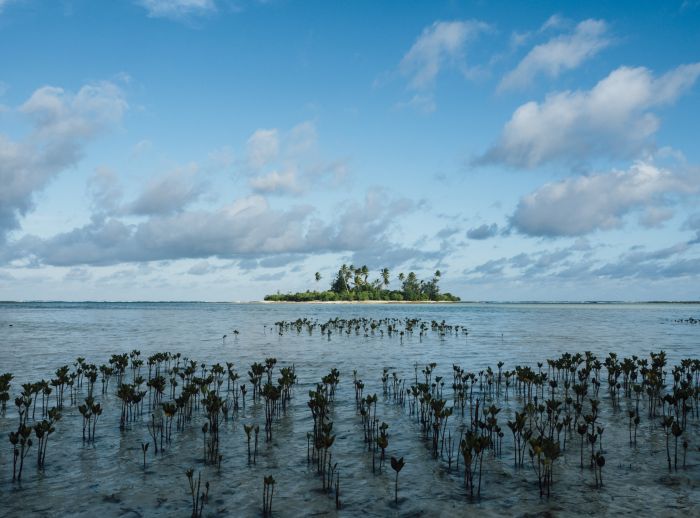
With the oceans continuing to absorb most of the heat trapped by greenhouse gases, sea temperatures continue to rise. In 2019, scientists warned that the world's oceans were warming at an alarming rate of five Hiroshima bombs of heat every second. This has a major impact on fish, one of the islanders’ main sources of food. Recent research has shown that as the oceans warm, the fish that people living close to the equator rely on, for both their survival and livelihood, are migrating towards the poles and cooler waters. In the short term, this means fewer fish. In the long term, it will result in heightened levels of food insecurity for these communities.
While it is important to recognise the magnitude of these problems, we cannot – and should not – lose hope. Adaptation measures such as mangrove planting have been successfully piloted in Kiribati and Tuvalu. Mangroves not only protect coasts from erosion, they provide vital ecosystems for marine life and mitigate climate change by acting as sinks for excess carbon in the atmosphere.
But there is much more to do. If we, as a global community, want to protect communities like the Pacific Islanders, we must decarbonise – but we must act fast. Reducing greenhouse gas emissions is only half the battle; we must get to a point of negative emissions where we remove carbon dioxide from the atmosphere to stabilise global warming to within 1.5°C, the target committed to by signatories of the 2015 Paris Climate Agreement.
This must be the decade when world leaders step up to protect our planet and its people. Otherwise, we all face an unimaginable future.
Support our climate action work by picking up an Unwrapped alternative gift today!
Oxfam works with communities around the world in the fight against climate change. We support people by providing them with training in climate-resilient farming, alternative income generation and adaptation measures. We build solar-powered water pumps in areas experiencing drought and work with communities like the Pacific Islanders to lobby governments to do more to reduce greenhouse gas emissions.
